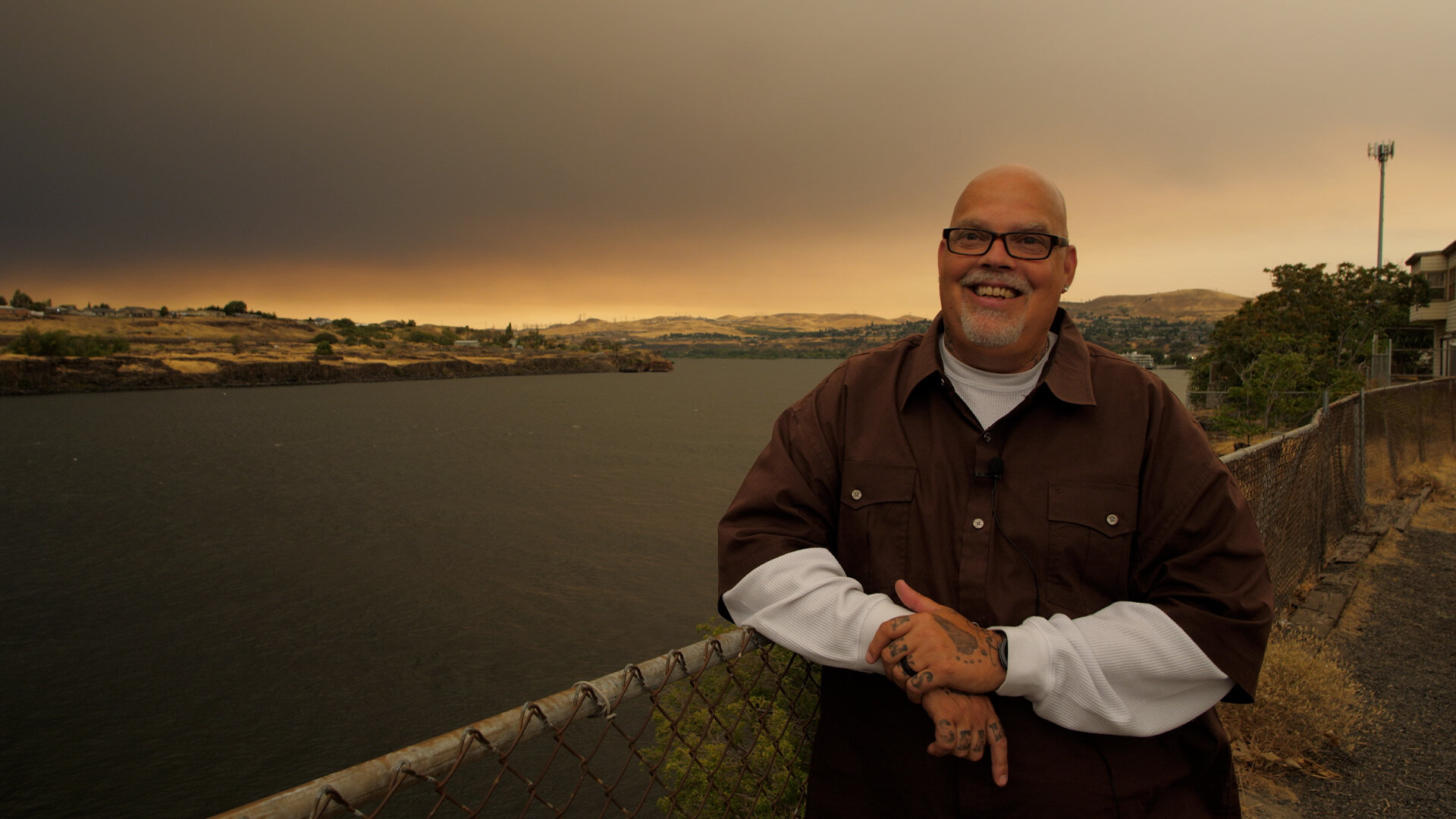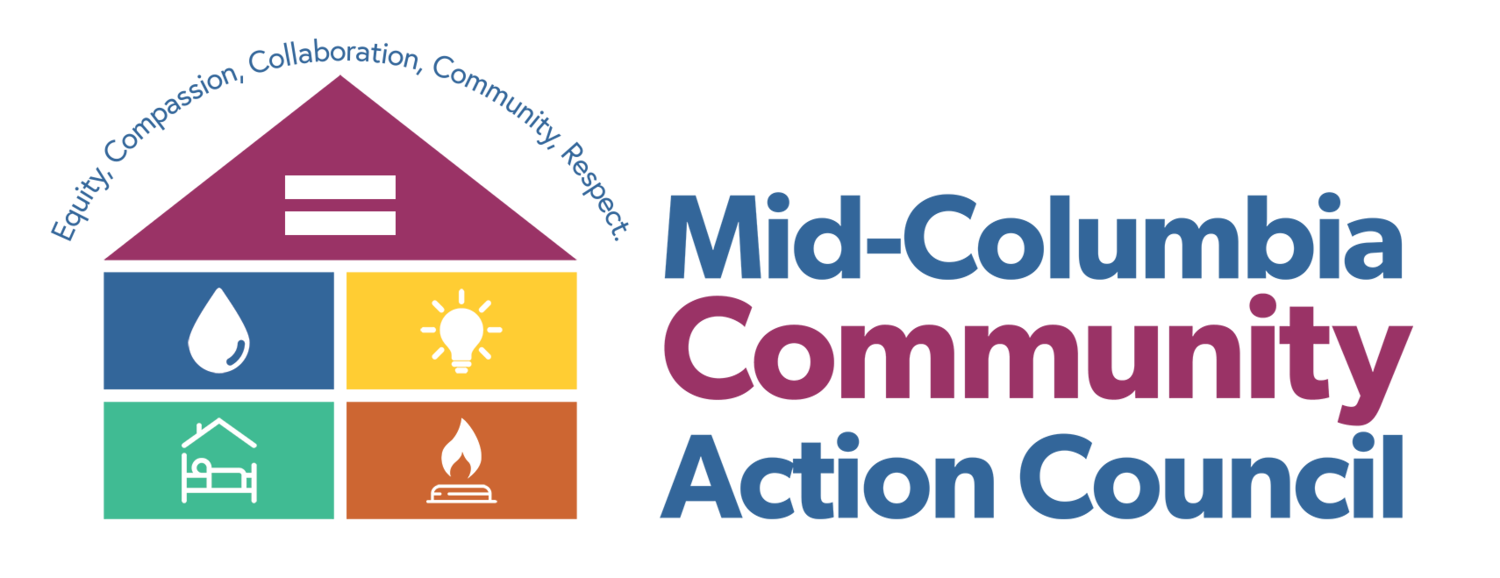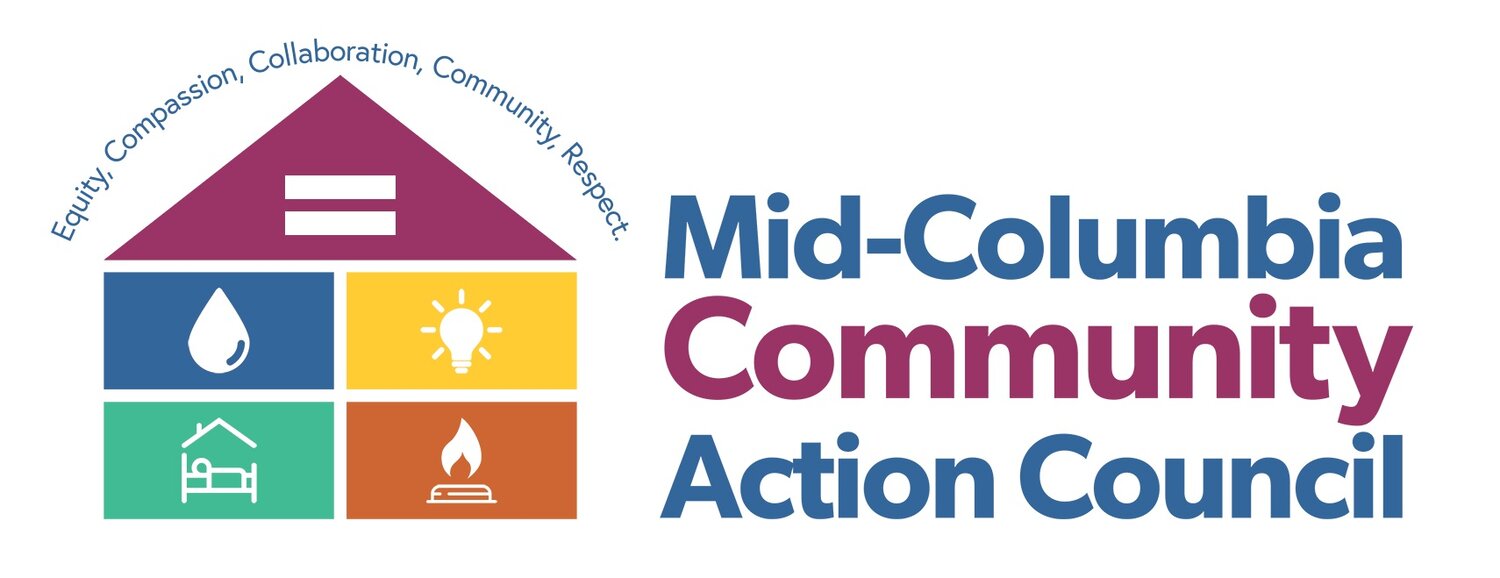
A New Era
Strategic Plan July 2021 - June 2024
MCCAC’s new logo - September 2021
Vision
We envision a bright, equitable, and dignified future for our community and our organization where our community thrives, our partnerships expand and deepen our impact and our staff are empowered and supported to do their best work.
Mission
Our mission is to build a better future for our community through partnership and equity-centered programs that prevent and eliminate poverty and houselessness.
Values
Equity, Compassion, Collaboration, Community, Respect

Note From Executive Director
Kenny LaPoint, MCCAC, Executive Director
Today we find ourselves in the midst of multiple crises; COVID-19 has wreaked havoc on our communities resulting in our most economically fragile friends and neighbors being left out in the cold. This has been compounded with a housing crisis that has been years in the making; rising rents and overall lack of available and affordable housing has resulted in increased houselessness and the complete destabilization of our most vulnerable community members. While our current reality has proven trying, Mid-Columbia Community Action Council (MCCAC) has entered a new era and is poised to lead our communities toward the bright, better future that awaits.
This Plan, titled “MCCAC, A New Era,” is the roadmap for our work from 2021-2024 and highlights the core goals of our agency during this time. Led by the overarching goal of Equity and Racial Justice, we will work to expand service provision and increase access to the many diverse communities that make the Mid-Columbia region such a wonderful place to call home. The Plan was developed in consultation with multiple community partners, stakeholders, MCCAC staff and its Board of Directors and incorporates community wide data sets to help inform strategy and direction that match up with community need. The Plan is aspirational but with the social capital and strong collaborative relationships in the Mid-Columbia Region, it is achievable.
As we embark on this Plan, I implore you to join us in our work to address some of the most complex challenges that our communities are facing. For this plan to be successful, we need the entire Mid-Columbia community to recognize the value we bring as a whole. It is through the power of a unified community that we will help make our community a better place. A place where houselessness is a thing of the past and where our most vulnerable community members are anchored in stability, and all are provided with opportunities for success.
Best Regards,
Kenny LaPoint
MCCAC, Executive Director

““The more stakeholders and stakeholder groups we have working toward shared goals, that is always helpful in moving everyone’s efforts in the same direction.” ”
Community Engagement
In preparation for MCCAC’s 2021 Strategic Planning, the Executive Director along with members of the Board of Directors conducted interviews of 14 community stakeholders and partners to better assess the opportunities that lie ahead for the agency. Participants were asked about the top needs in the community and about how they would like to partner with MCCAC.
The overwhelming concern from the interviews was housing. Respondents stated that rising rents combined with lack of available housing inventory to meet the need are contributing to the issue. Importantly, the need for services tied to affordable housing is critical to address the needs of those exiting homelessness and/or those with behavioral health and substance use disorders. Multiple respondents stated a need to work with the Native American community that resides within the Gorge to address safety and habitability issues. Weatherization program resources are needed to address the needs at the in-lieu sites along the river. All emphasized the need to engage communities of color through culturally responsive and appropriate services.
A major theme was that MCCAC’s should serve as the regional coordinator of the homeless service system. The region has lacked leadership around homelessness, and this is by far the greatest stated need. MCCAC should use its unique position as the primary recipient of homeless service funding to convene and coordinate collaboration amongst those working in the homeless service system.
Finally on the questions of collaboration and partnership community partners emphasized the need to work together with clear and consistent communication to create a strong network of culturally responsive providers.
The input from our community partners included thoughtful guidance and specific actionable ideas that became the foundation for a series of planning meetings that involved our full board and staff.
COMMUNITY PARTNERS INTERVIEWED
Columbia Gorge Health Council
Gorge Food Bank
Hood River Adult Center
Hood River County Sheriff
Hood River Police Department
Mid-Columbia Center for Living
Mid Columbia Housing Authority
Mid Columbia Medical Center
N’Ichi Wana Housing
One Community Health
Providence Health Systems
Sherman County Sheriff
The Next Door Inc
The Dalles Police Department

““The most exciting thing for me personally is that we have the opportunity— the privilege— daily, to make a huge difference in the lives of people, not just when we spend money on their behalf but also through compassionate listening, connection to resources within and without the agency, and by validating their experiences and empowering them to take control of their own lives.””
Board/Staff Retreats
Board and staff came together for multiple planning sessions to envision a future for MCCAC, something that had not occurred for many years. Facilitated by Catalysis LLC, the sessions encouraged participants to create an aspirational and achievable vision for the organization, refine a set of organizational values, and begin forming the foundation for a practical but energizing strategic plan.
The resulting vision will serve as a guide for the organization over the next three to five years. This serves as the “why” of this strategic plan.
Our Vision
We envision a bright, equitable, and dignified future for our community and our organization where our community thrives, our partnerships expand and deepen our impact and our staff are empowered and supported to do their best work.
The values then describe the “how” – the way in which each of us in the organization will approach our work. We recognize it will be important for us to continue to explore how we put these values into practice, what they mean, and how we can hold ourselves accountable.
Our Values
Equity, Compassion, Collaboration, Community, Respect
Finally, participants pulled from the community input and organizational knowledge to identify what must be done to achieve our vision and identified four major goal areas around equity and racial justice, community relationships, housing stability and homelessness services, and organizational health and infrastructure.

Strategic Plan
Strategic Plan
GOAL AREAS
Equity and Racial Justice
Community Relationships
Housing Stability and Homelessness Services
Organizational Health and Infrastructure
““We’re all in this together to solve the challenges that face our community.””
To meet our mission and realize a future of in which all in our community thrive, MCCAC is committed to working with our community to build strong, sustainable programs with lasting and measurable impacts. We have identified four Major Goal Areas that are critical to our success. Each of this is described with a series of high-level initiatives and actions that we are undertaking right away.
Outreach teams’ dog, Mr B working hard delivering supplies to community members
Goal Area 1:
Equity & racial Justice
-
Build our staff awareness, understanding, and capacity to center equity in our services
Action:
Provide staff and board ongoing and meaningful trainings on equity and racial justice.
-
Strengthen Community Involvement
Action:
Working with culturally specific community partners increase our engagement with people of color, Latinx and Native community members on MCCAC programs and services.
Establish an MCCAC Equity Council, made up of internal and external members, who provides feedback to the MCCAC Board and Leadership on how the agency can increase equitable access to its programs and services.
-
Support a Diverse Board
Action:
Fill open seats on the MCCAC Board of Directors with people of color, Latinx or Native community members.
Ensure new board members have support they need for their service to be successful, acknowledging that board structure originates from white dominant culture.
-
Articulate Our Commitment to Equity
Action:
Develop an authentic MCCAC organizational statement on equity by January of 2022.
-
Provide Spanish and English Language Access
Action:
Translate materials, with native speaker/community input on cultural adaptation whenever possible.
Provide translation services as needed for critical programs.
Goal Area 2:
Community Relationships
-
Engage with Partners and Collaborators
Action:
By July 2022, implement a community partner and community member survey to help garner feedback on MCCAC offered programs and services.
Each MCCAC program manager will provide monthly program overviews to at least one partner group or agency.
Each MCCAC program division will engage a partner agency to participate in internal MCCAC meetings to inform our staff of programs and services offered by other agencies.
-
Work with Local Governments
Action:
MCCAC’s Executive Director and Board Members provide annual MCCAC updates to elected officials, city councils, and county commissions.
-
Build a Regional Houselessness Service System
Action:
MCCAC leadership and staff will play a proactive, leadership role in building a strong regional houselessness service system.
-
Provide Spanish and English Language Access
Action:
Translate materials, with native speaker/community input on cultural adaptation whenever possible.
Provide translation services as needed for critical programs.
Goal Area 3:
Housing Stability & Houselessness Services
-
Create a Coordinated Entry System
Action:
By January of 2023, have an effective and supported Coordinated Entry system fully operating across the region. Coordinated Entry is a process developed to ensure that all people experiencing a housing crisis have fair and equal access and are quickly identified, assessed for, referred, and connected to housing and assistance based on their strengths and needs.
-
Build Strong Health, Housing and Shelter Partnerships
Action:
Partner with community health clinics to bring clinical services to shelter and other housing sites.
-
Support Shelter to Permanent Housing Placement
Action:
Annually move a minimum of 20 shelter guests into permanent housing.
Metric: 75% of households placed in permanent housing retain that housing for 12 months or longer.
-
Increase Housing Stability
Action:
Improve housing stability through utility bill pay and weatherization programs.
Weatherization: by 2023, establish a program to target Weatherization resources on neighborhoods with high concentrations of medical conditions.
Improve overall household energy efficiency through MCCAC’s Weatherization and Energy Education programs.
Goal Area 4:
Organizational Health & Infastructure
-
Support Our Staff
Action:
Provide staff with at least one professional development opportunity annually related to their position. This is in addition to equity trainings for all staff.
Complete revisions to MCCAC Personnel Policies, onboarding processes, position descriptions, and pay structure by January 2022.
-
New Agency Website and Logo
Action:
Launch and release new agency website and logo by September 2021.
-
Redevelop the Hamilton Apartments
Action:
Successfully apply for Conditional Use Permit with the City of The Dalles by January 2022.
Successfully apply for State of Oregon funding for the redevelopment of The Hamilton by June 2022.
Complete the redevelopment of The Hamilton Apartments by June 2024.
-
Secure Welcoming and Functional Office Space
Action:
Identify a more suitable location for the offices in The Dalles and Hood River.
By July of 2024, move into updated administrative offices that better support the needs of staff and the community.

Implementation
Plans for Implementation
We know our plan will be only as effective as the energy and accountability we apply to our work. For that reason, we will be stepping forward with intention in how we remain accountable, measure our progress, and adapt to meet new demands and opportunities.
Our implementation steps include:
Board will review annually and continue to evaluate, and update established metrics.
Monthly board reports will be linked to the goals and initiatives of the strategic plan.
Meeting strategic plan goals will be a part of annual staff work plans.
We will share and present our plan to local government bodies, including progress and modifications as needed.
We will hold listening sessions with our community partners to remain accountable to the input they provided on this strategic plan, increase our mutual understanding of our activities and goals, share progress, and receive feedback.
Planning Participants
MCCAC’s Outreach Team in The Dalles, Wasco County, Oregon
Joan Bird, Chair-Sherman County (elected official)
Amy Asher, Sherman County
Kari Pinkerton Silcox, Sherman County
Kathy Schwartz, Wasco County (elected official)
Scott McKay, Wasco County
Andrea Mejia, Wasco County
Arthur Babitz, Hood River County (elected official)
Marianne Durkan, Hood River County
Sarah Kellems, Hood River County






